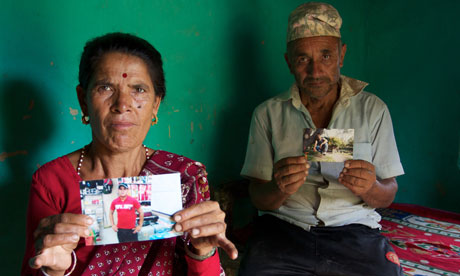By Brandon Cottrell
Impunity Watch, North America Reporter
MEXICO CITY, Mexico – The number of disappearances that go unsolved in Mexico continues to rise even though President Enrique Pena Nieto continually pledges to tackle this problem. For example, just recently four people disappeared within six days from an area close to the United States border, which exposed again, “the cruel mix of state corruption and organized crime.”
In February, Nieto’s administration revealed that between 2006 and 2012, 26,000 people have disappeared and not yet been found and that an additional 60,000 people have been killed during that span. The administration also acknowledged that the authorities have not properly investigated these disappearances and often did not even carry out a basic investigation.
Several of the disappearances stem from marine checkpoints. Eyewitnesses claim that they saw the marines force individuals into a military vehicle and drive towards a nearby base. However, personnel at the base told the eyewitnesses that no civilians were being held. Despite such a statement, the individuals taken are still missing and little progress has been made in finding them.
Rupert Knot, a researcher for Amnesty International Mexico, said that these “cases [are] languishing with the Federal Attorney General” and that the “prosecutors want the families to provide more evidence while [the prosecutors] do nothing to further the investigations.” Additionally, the prosecutors say, “the eyewitness accounts prove nothing [because] naval authorities deny responsibility.”
Furthermore, corrupt law enforcement officers is a common problem as many officers work for the drug cartels. For example, in a mass kidnapping and killing of thirteen young adults earlier this summer, and in a kidnapping of a man from his car, police officers were involved. The families of these victims say they do not trust Mexican authorities and hope for an independent international investigation.
Discouraged by the authorities’ investigations, there has been a movement sweeping across Mexico where the community itself carries out investigations. The group meets regularly with prosecutors and use social media to raise awareness. It also gives strength to the families of the victims and shelters those who want to investigate from the intimidation and pressure from the state to abandon the search.
Although Mexico has not submitted a required report pursuant to the International Convention for the Protection of All Persons From Enforced Disappearance, which would detail what it is doing to solve these disappearances, Nieto has taken some action to remedy the problem, such as assigning new investigators and creating a new unit dedicated to solving the disappearances. The Mexican legislature is also considering whether to “reform the military justice system once and for all, and ensure civilian justice to investigate and try all cases of human rights violations by the armed forces.”
For more information, please see:
Al Jazeera – Mexico’s Disappeared Continues To Rise – 29 September 2013
Amnesty International – Mexican Senate Must End Impunity For Armed Forces’ Human Rights Violations – 27 September 2013
CNN – Fourth Officer Arrested In Mexico Mass Kidnapping Case – 25 September 2013
Daily Mall – Mexican Police Drag Man From Car And Kidnap Him In Broad Daylight – 27 September 2013



